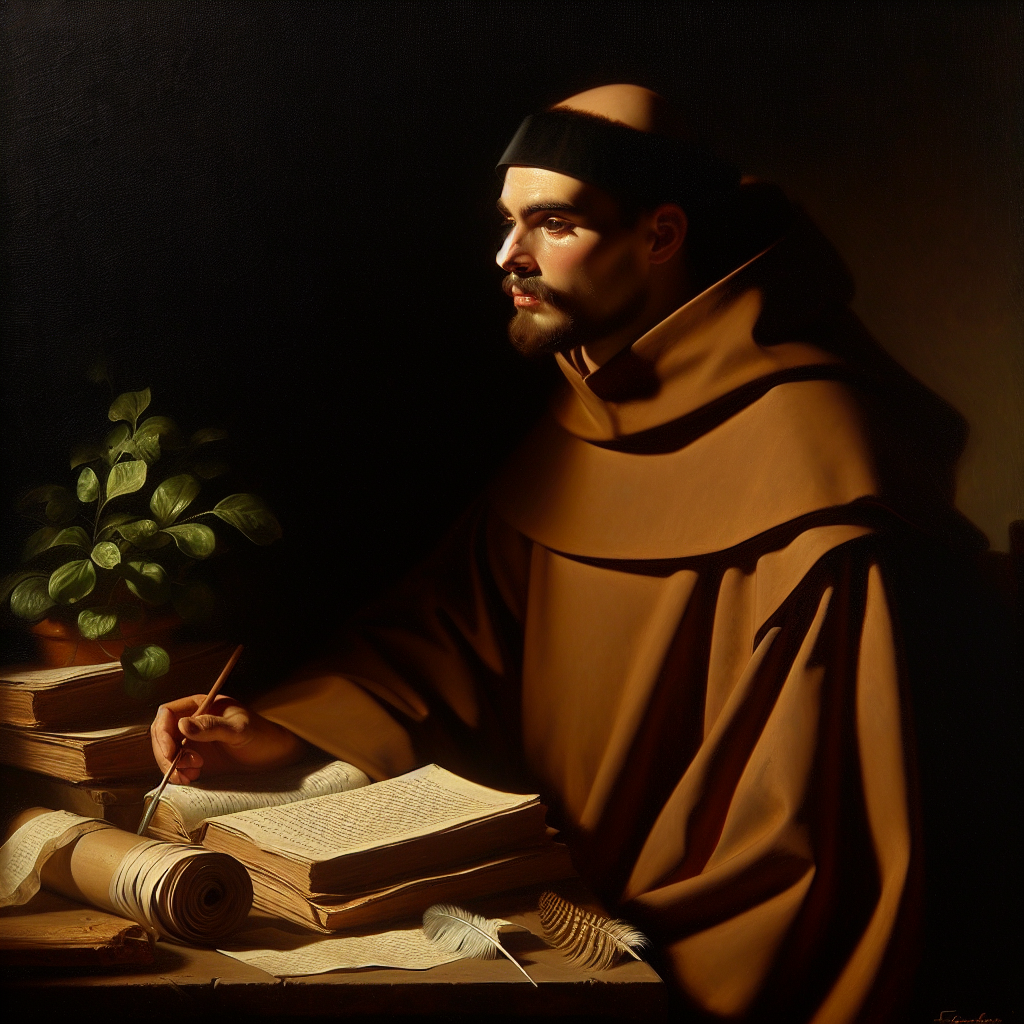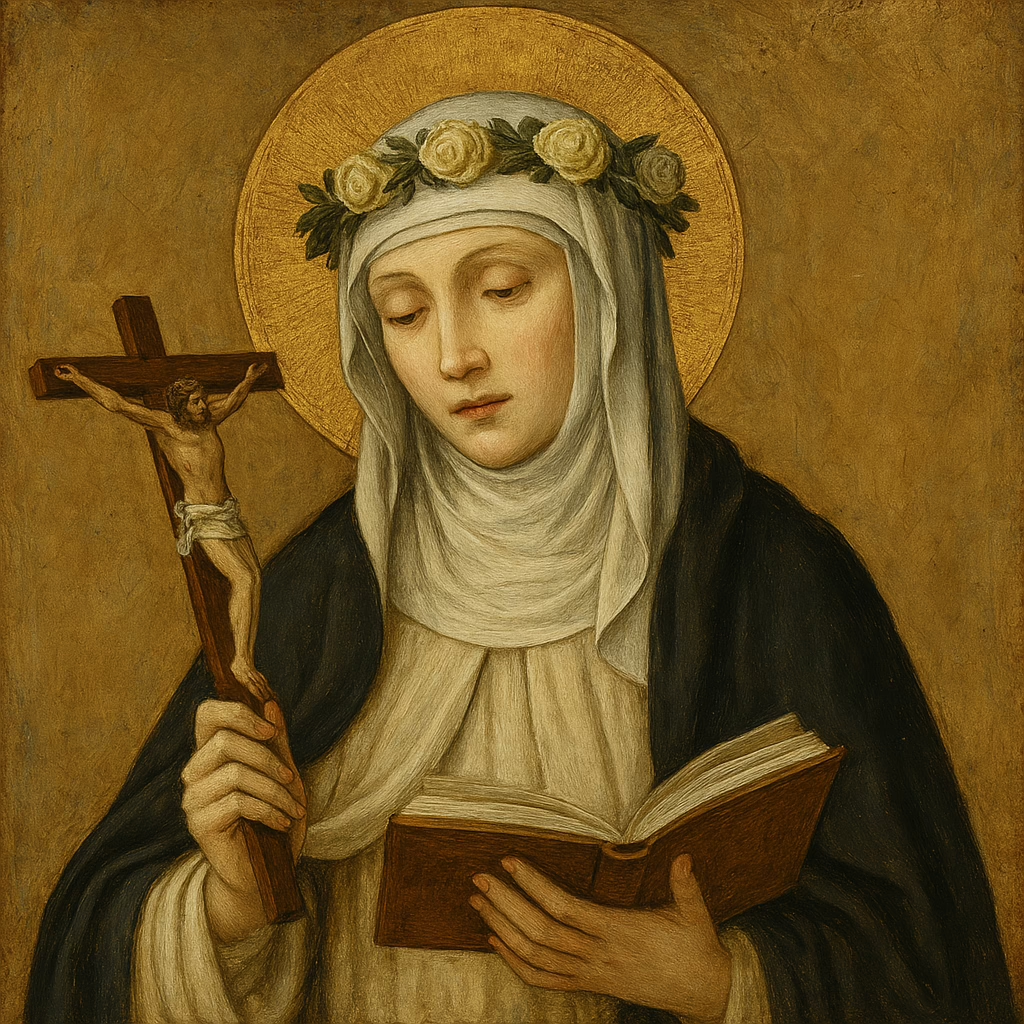Exploring the Life and Legacy of St. Thomas Aquinas: A Guide to His Teachings and Impact
Introduction: The Intellectual Journey of St. Thomas Aquinas
"Faith is the beginning of understanding." These words encapsulate the essence of St. Thomas Aquinas's philosophy, a philosophy that has illuminated the Catholic faith and provided a foundation for intellectual inquiry. Known as the "Doctor Angelicus" and "Doctor Communis," St. Thomas Aquinas was a towering figure in Catholic theology and philosophy. His synthesis of Christian doctrine with Aristotelian philosophy has made an indelible mark on the Church's teachings. In this blog post, we will explore various dimensions of his extraordinary life, his seminal works, his miracles, and their continued relevance in today's world.
1. Early Life and Scholarly Formation
1.1 Childhood and Family Background
Born into a noble family around 1224-1225 in the Italian town of Roccasecca, St. Thomas Aquinas was destined for a path far from his aristocratic beginnings. His upbringing played a crucial role in shaping his extraordinary future. Educated under the tutelage of the Benedictine monks at Monte Cassino and later at the University of Naples, Thomas was exposed to an intellectual world that kindled his deep passion for knowledge.
1.2 The Call to the Dominican Order
In a move that astonished his family, Thomas chose to join the Dominican Order, abandoning prospects of political power and wealth. This decision reflected his profound commitment to a life of poverty and academic pursuit in service to God. The Dominicans' focus on education and their vow of poverty resonated deeply with his spiritual calling.
1.3 Intellectual Development in Paris
Thomas's journey continued at the University of Paris, where his intellectual abilities flourished under the guidance of Albertus Magnus. It was here that Aquinas embraced the synthesis of Christian theology with Aristotelian philosophy, a fusion that would revolutionize Catholic doctrine. His time in Paris marked a pivotal period where reason and faith began a dialogue that would extend far beyond his lifetime.
2. Major Works and Theological Contributions
2.1 The Summa Theologica
The Summa Theologica stands as Aquinas's magnum opus, a monumental theological compendium addressing God's nature, morality, and human salvation. It remains a cornerstone of Catholic doctrine, used extensively in both teaching and theology. By weaving intricate philosophical concepts into Christian theology, Aquinas demonstrated the profound interconnectedness of faith and reason.
2.2 Other Significant Writings
Among his other major works, the Summa Contra Gentiles serves as a robust defense of Christianity against the criticisms of non-believers. In his writings on ethics, law, and happiness, Aquinas explored humanity's quest for knowledge and fulfillment within the divine order. Each text contributes to a fuller understanding of God and the moral life.
2.3 The Integration of Faith and Reason
Aquinas's remarkable ability to reconcile faith and reason remains one of his most enduring legacies. He argued that reason could lead to deeper religious insights, a view that significantly influenced Catholic thought and modern theology. Interested readers might delve into explanations of scholasticism to further appreciate Aquinas's contributions to this intellectual tradition.
3. Miracles and Divine Insights
3.1 Understanding of Miracles
Aquinas defined miracles as extraordinary acts attributable directly to God, transcending the natural order but not contradicting it. He distinguished between miracles beyond nature's capacity and those that represent significant signs of divine presence. These insights affirm the continuity of God's involvement in creation.
3.2 Aquinas's Life Events as Miraculous
Several events in Aquinas's life left observers wondering at divine intervention, particularly his untimely death at Fossanova at the age of 49. Although some speculated foul play, others saw it as God's mysterious plan. These life events continue to be regarded as reflections of God's providence.
3.3 Legacy of Miracles in the Context of Faith
While Aquinas's teachings inspire faith more than his personal miracles, they substantiate belief in divine providence. His theological work reaffirms the relevance of miracles, anchoring faith in the contemporary world and highlighting how believers today continue to experience God's interventions.
4. Lessons and Teachings for the Faithful
4.1 Theological Virtues
Faith, hope, and charity are central to Aquinas's teachings, forming the bedrock of Christian life. He taught that these virtues are essential for aligning human actions with divine will, guiding believers to a deeper relationship with God.
4.2 Challenges in Understanding Aquinas
Despite the richness of Aquinas's works, modern believers may encounter challenges due to their complexity. However, resources exist to guide students through these profound teachings, offering pathways to deeper understanding.
4.3 Opportunities for Integration of Faith and Reason
Aquinas’s model of integrating faith and reason invites contemporary Christians to pursue knowledge with zeal. This intellectual endeavor not only enriches faith but enhances educational experiences, exemplified by many Catholic institutions today.
5. Devotion and Prayers Associated with St. Thomas Aquinas
5.1 Traditional Prayers and Their Significance
Prayers like the "Prayer of St. Thomas Aquinas Before Study" serve as a testament to his spiritual depth, aiding believers in seeking wisdom and understanding. Such devotions facilitate growth in both knowledge and spirituality.
5.2 Best Practices for Honoring Aquinas
Engaging with Aquinas's teachings in daily life can be achieved through study groups or personal reflection, encouraging an integration of his wisdom into spiritual practices and community worship.
5.3 Contemporary Devotional Practices
In today's theological landscape, Aquinas’s approach remains influential, offering valuable insights to navigate modern challenges. Devotional practices that honor his legacy continue to inspire believers to tap into the riches of Catholic tradition.
Conclusion: Embracing the Legacy of St. Thomas Aquinas
In looking back at St. Thomas Aquinas's life and teachings, we discover not only a legacy of profound theological insight but a roadmap for uniting faith and reason. His call to use intellect in the pursuit of divine truth challenges us to delve deeper into our understanding of God. As we continue to explore his monumental works, we find that they resonate with our quest for faith, igniting our minds and hearts with a love for truth.
For those eager to delve further into Aquinas’s life and contributions, consider the following books available on Amazon:
Embrace the insights of St. Thomas Aquinas, and may his teachings continue to light our spiritual and intellectual journeys.





